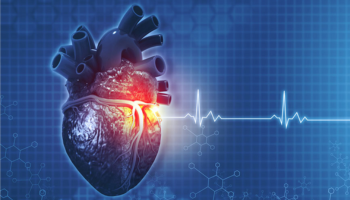
Introduction:
A healthy heart is essential for overall well-being, and regular monitoring plays a crucial role in maintaining cardiovascular health. Fortunately, advancements in medical technology have provided a range of tests and imaging procedures that aid in the early detection and prevention of heart-related issues. In this article, we will delve into the importance of heart health and explore various diagnostic tools available to assess and maintain a healthy heart.
The Importance of Heart Health:
The heart is a vital organ responsible for pumping blood throughout the body, supplying oxygen and nutrients to various tissues and organs. Maintaining a healthy heart is key to preventing common cardiovascular diseases such as heart attacks and strokes.
It is important to note that lifestyle factors, genetics, and environmental influences can greatly impact heart health; therefore, making regular health screenings are essential for early intervention and prevention.
Common Heart Health Tests:
1. Blood Pressure Measurement: High blood pressure (hypertension) is a leading cause of heart disease. Regular blood pressure checks help monitor and manage hypertension, reducing the risk of heart-related complications.
2. Cholesterol Level Testing: High levels of cholesterol can contribute to plaque buildup in the arteries, leading to atherosclerosis. Fasting Lipid profile tests assess cholesterol levels and help in determining the risk of heart disease.
3. Electrocardiogram (ECG or EKG): An ECG measures the electrical activity of the heart, detecting irregularities in the heartbeat rhythm. It is a valuable tool for diagnosing arrhythmias and other cardiac abnormalities.
4. Stress Testing: Stress tests assess the heart’s performance under physical stress, typically through exercise or medication. They help identify coronary artery disease and evaluate the heart’s response to exertion.
5. Echocardiography: This non- invasive imaging technique uses sound waves to create detailed images of the heart’s structure and function. Echocardiograms provide valuable information about the heart’s chambers, valves, and blood flow.
6. Cardiac CT Scan: Computed Tomography (CT) scans of the heart produce detailed cross- sectional images, allowing for the visualization of coronary arteries and detection of blockages. or abnormalities.
7. Cardiac MRI: Magnetic Resonance Imaging (MRI) of the heart provides high-resolution images, offering insights into heart structure, function, and blood flow. It is particularly useful for assessing heart muscle damage and identifying congenital heart defects.
8. Coronary Angiography: This invasive procedure involves injecting a contrast dye into the coronary arteries, followed by X-ray imaging. Coronary angiography helps identify blockages and assess blood flow in the heart.
Regular heart health assessments, including both routine tests and advanced imaging procedures, play a pivotal role in preventing and managing cardiovascular diseases. By monitoring key indicators and identifying potential issues early on, individuals can take proactive steps to maintain a healthy heart through lifestyle modifications, medication, and other interventions. Consulting with healthcare professionals and undergoing recommended screenings can contribute to a longer and healthier life with a well-functioning heart.
At Insightplus Healthcare, we are equipped with state-of-the-art diagnostic equipment to care for your heart. Make heart-healthy choices today and let’s guide you through a healthier life.





